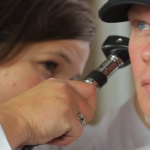Complete Guide to DOT Physical Failures: Prevention, Recovery, and Getting Back on the Road
What Is a DOT Physical & Why It Matters
Resources & Next Steps
External Resources for Additional Information:
- FMCSA Medical Examiner’s Handbook – Physical Qualifications Standards
- FMCSA National Registry – Find Certified Medical Examiners
- CDC – High Blood Pressure Information & Management
Your Action Plan: Starting Today
- Assess Your Current Status: When is your next DOT exam due? Are you currently certified or do you need to schedule an exam?
- Identify Risk Factors: Do you have any conditions that might be DOT concerns (high BP, vision changes, sleep issues)? Schedule a check-up.
- Preventive Action: If you’re not due for an exam yet, use this guide to address any borderline conditions now.
- Schedule Your Exam: Book your DOT physical with a certified examiner. The goal is passing on your first attempt.
- Stay Informed: Refer back to the specific articles in this guide for detailed information on your particular situation.
Ready to Schedule Your DOT Physical?
Get certified by an FMCSA-Certified Medical Examiner who specializes in DOT compliance.
Examiner: Dr. Lemuel P. Byrd, Jr., D.C.
Call Now: 704-544-3494
Hours: Monday-Friday 9am-5pm | Saturday 9am-12pm
Location: 8415 Pineville-Matthews Road, Suite 102, Charlotte, NC 28226
Cost: $70 | No Wait Policy | Walk-ins & Appointments Welcome
Convenient to: I-485, I-77, I-85 | Ample Bobtail Parking
Services: DOT Exams, Drug Testing, Company Contracts Available

